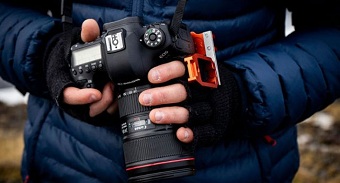As ransomware scares continue to halt operations of major companies and large cities across the country, researchers have found yet another device that is vulnerable to hackers seeking payment to unlock systems: DSLR cameras.
Security researchers with Check Point Software Technologies were able to install harmful malware onto cameras if they were in close proximity to their WiFi networks or if they had already hijacked a computer through a USB drive. The report notes that DSLR cameras are “embedded digital devices,” putting them at risk just like every other IoT device.
“Our research shows that any ‘smart’ device, in our case a DSLR camera, is susceptible to attacks,” the report reads. “The combination of price, sensitive contents, and wide-spread consumer audience makes cameras a lucrative target for attackers.”
The team, led by researcher Eyal Itkin, demonstrated in a video how a hacker could encrypt images on an SD card and make them inaccessible to the camera’s owner through a WiFi network. Because cameras are “the guardians of our precious moments,” Itkin wrote, hackers know that the owner does not want to lose the photos and therefore is more likely to pay the ransom fee.
Canon was alerted to the vulnerability in their “picture transfer protocol” in March, and Check Point worked with the company to develop a security patch that was released last week, according to The Verge. The researchers noted that while they only worked with Canon, the protocol is “standardized” and embedded in other cameras sold by Canon’s competitors. “Based on our results, we believe that similar vulnerabilities can be found in the PTP implementations of other vendors as well,” the report reads.








